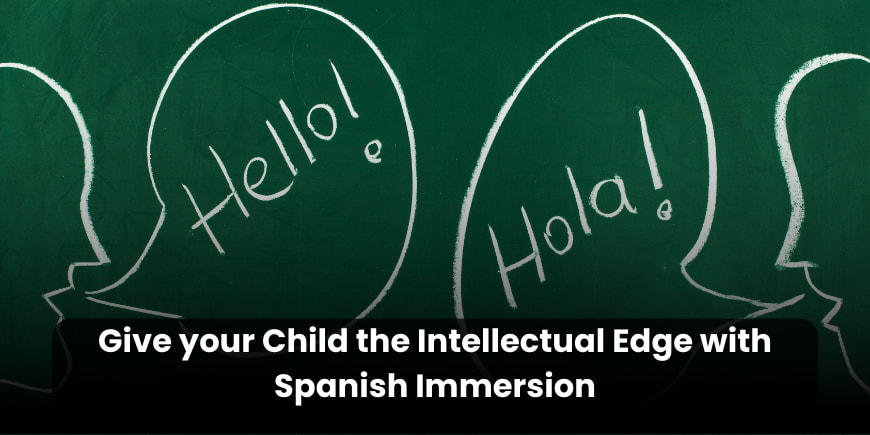Give your Child the Intellectual Edge with Spanish Immersion
The ability to communicate in multiple languages is a valuable skill. Spanish immersion education at LIPP Schools offers a unique opportunity for children to develop fluency in both English and Spanish. In this article, we will delve into the developmental benefits of Spanish immersion education. We will highlight how it enhances problem-solving skills, memory retention, and mental flexibility. We also have research-backed evidence to showcase the long-term advantages of this approach.
The Advantages of Spanish Immersion Education
Enhanced Problem-Solving Skills:
One of the most significant advantages of Spanish immersion is the improvement of problem-solving skills. Research shows that bilingual individuals tend to excel in tasks that need complex problem-solving and creative thinking. When children learn two languages, they develop the ability to switch between languages. It exercises their mental flexibility and adaptability.
Studies have been conducted by the American Academy of Arts and Sciences. They show that bilingual individuals often approach problem-solving differently from their monolingual peers. They can draw upon their diverse linguistic and cultural backgrounds. It helps them find innovative solutions to challenges. This dexterity comes from the constant brain workout bilingualism provides. Thus, making it an invaluable skill for the modern world.
Greater Memory Retention:
Memory retention is another area where bilingualism shines. Learning a second language involves memorizing vocabulary, grammar rules, and sentence structures. It provides a continuous exercise for the memory centers of the brain. Due to this, bilingual children tend to have stronger memory skills compared to their monolingual counterparts.
A study published in the journal “Psychological Science” found that bilingual individuals tend to perform better in memory-related tasks. This advantage extends to various aspects of memory. It includes short-term memory, working memory, and even long-term memory. The constant thinking exercise required to maintain proficiency in two languages creates a mental reserve that benefits individuals throughout their lives.
Cognitive Flexibility:
This is the ability to adapt to new information and tasks. It is a crucial skill that is developed through Spanish immersion education. When children are exposed to different languages and cultures, their brains become more adept at switching between different modes of thinking. This skill extends beyond language. It can also enhance a child’s ability to adapt to diverse situations and challenges.
Research published in the journal “Psychological Science” suggests that bilingual individuals show greater thinking flexibility compared to monolinguals. Learning Spanish alongside English at a young age stimulates the brain’s executive functions. Thus enabling children to navigate complex analytical tasks with ease. This flexibility not only aids in academic pursuits but also has real-world applications.
Research-Backed Evidence for Long-Term Benefits
The advantages of Spanish immersion education don’t stop at childhood. They have lasting benefits that can impact an individual’s future.
Research conducted by the American Council on the Teaching of Foreign Languages (ACTFL) found that bilingual individuals are often better at multitasking and managing cognitive load. This can be helpful in high-stress professions.
Moreover, bilingualism has been linked to a reduced risk of mental decline and neurodegenerative diseases in later life. Studies conducted by Dr. Ellen Bialystok, a leading researcher in bilingualism, show that speaking two languages can delay the onset of mental decline by several years. This is attributed to the cognitive reserve built through a lifetime of bilingualism.
In today’s globalized job market, being bilingual is also a valuable asset. Many employers value employees who can communicate with a broader range of clients and customers. Bilingual people have a competitive edge in job interviews and career advancement opportunities.
Conclusion:
The Spanish immersion program at LIPP Schools provides children with a unique opportunity to develop bilingualism. It also helps them to reap mental benefits that extend throughout their lives. It enhances problem-solving skills, memory retention, and brain flexibility. By doing so, this educational approach equips students with valuable skills for success in the modern world.
The research-backed evidence further shows the long-term benefits of bilingualism. Thus, making it a wise choice for parents looking to give their children a cognitive edge. Invest in your child’s future by embracing the advantages of Spanish immersion education, and watch them thrive in a multicultural, multilingual world.




